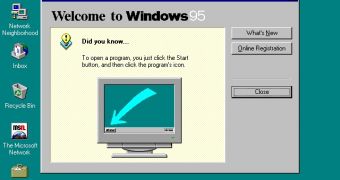The Denver-based 10th US Circuit Court of Appeals has finally announced a verdict in the Novell versus Microsoft lawsuit, claiming that the Redmond-based tech giant cannot be accused of infringing competition rules in a case that started during the ‘90s.
Novell Inc. originally sued Microsoft in 2004, claiming that Redmond deliberately delayed the launch of Windows 95 to slow down sales of its own WordPerfect productivity suite and thus bring more users to Office.
At the same time, Novell accused Microsoft for trying to maintain its monopoly in the OS market using unfair market strategies.
Microsoft quickly denied all accusations at that time, saying that its initial delay of the Windows 95 launch was mostly caused by internal discussions on the features to be implemented into the operating system.
Microsoft’s co-founder Bill Gates has been asked to testify twice in this case, with the judge failing to reach a unanimous verdict in December 2011. Novell was quick to appeal the decision, saying that Microsoft’s decision to delay Windows 95 caused losses of $1.2 billion (€900 million).
Now that the judge ruled in favor of Microsoft, Novell says that it’s still considering its options, so more legal actions could follow.
"Ultimately this decision will have no effect on our day-to-day operations nor our company’s vision for current and future Novell customers," Jim Lundberg, Novell’s vice president for legal matters, said in a statement according to The Salt Lake Tribune.
Microsoft, on the other hand, applauded the decision and explained that it did absolutely nothing wrong with Windows 95.
"As we’ve maintained since it was filed over eight years ago, this case was meritless and should never have been brought," David Howard, Microsoft corporate vice president and associate general counsel, pointed out. "We’re pleased that the Court of Appeals has put it to rest once and for all."

 14 DAY TRIAL //
14 DAY TRIAL //